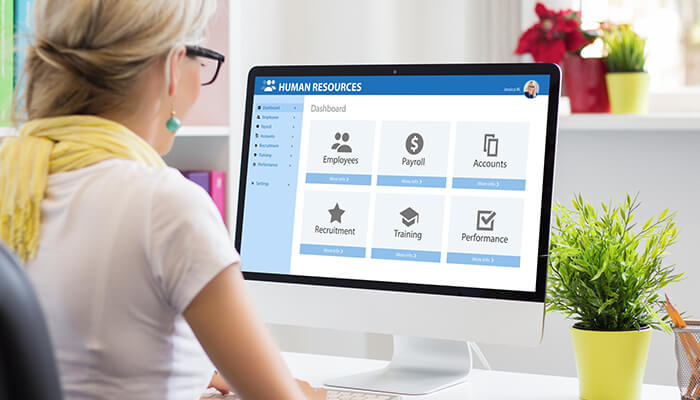In today’s fast-paced business environment, the importance of efficient and effective human resources management cannot be overstated. For small businesses, where resources are often limited and every decision can impact the bottom line, selecting the right HR software is crucial. It’s not just about automating routine tasks; it’s about harnessing the power of technology to drive growth, enhance employee satisfaction, and stay ahead in the competitive marketplace. But with many options available, how does a small business owner sift through the noise to find the perfect fit?
For starters, note that HR software isn’t a one-size-fits-all solution. Each business has its unique challenges, culture, and objectives. For a small business, factors like cost-effectiveness, ease of use, and scalability often take center stage. Yet, amidst the avalanche of features and promises made by various software providers, the real challenge lies in discerning which solution genuinely aligns with your business’s needs.
As such, this article shares a comprehensive guide to walk you through the critical considerations when going through the best HR software solutions for small businesses so you’ll select no less than the best for yours.
1. It Should Have Smooth Integration From Human Resources To Payroll Data
One of the most fundamental yet often overlooked aspects when choosing HR software for small businesses is the seamless integration between HR and payroll data. While HR focuses on managing and nurturing the workforce, payroll ensures that this workforce is compensated accurately and on time. Any disruption or lack of cohesion between these two can lead to inefficiencies, errors, and employee dissatisfaction.
For small businesses where the margin for error is slender, and resources are limited, it’s imperative to have an HR software that bridges the gap between these two critical areas. A smooth integration ensures that as soon as an HR change is made, be it a new hire, a promotion, a salary increment, or even a change in work hours, this data seamlessly flows into the payroll system without needing manual data entry. This helps lower the risk of errors and saves valuable administrative time.
Furthermore, real-time reporting becomes a breeze with integrated HR and payroll systems. Small business owners can easily pull reports that reflect current employee costs and overtime implications, or even forecast future payroll expenses based on HR decisions. Such insights are invaluable for budgeting, planning, and ensuring the business’s financial health.
2. It Should Have The Core Features Your Business Needs In An HR Software
Selecting the ideal HR software for your small business is more than chasing the latest bells and whistles or opting for the platform with the most extensive features. Instead, it’s about identifying software that aligns with your operations’ core needs.
For many small businesses, core features may include time and attendance tracking, employee self-service portals, and leave management and benefits administration. However, another company might prioritize performance management, recruitment and onboarding functionalities, or advanced reporting capabilities. By understanding your business’s day-to-day operations, its pain points, and future growth plans, you can determine which features are non-negotiable.
It’s also important to remember that while it’s tempting to opt for a platform that offers an expansive range of features, it can sometimes lead to unnecessary complexity. Not only can this overwhelm your HR staff and other users, but you might also end up paying for features you rarely use. A balanced approach would be to seek software that provides your essential features with the option to scale or add on functionalities as your business grows.
Essentially, in your quest for the right HR software, take a moment to list down the core HR tasks your business handles regularly. Prioritize them, engage with your HR team for their feedback, and reflect on where you see your business in the next few years. By focusing on a software solution that resonates with these core needs, you’re setting up your business for both immediate efficiency and future success.
3. It Should Be Within Your Small Business’s Budget
When setting a budget for HR software, small businesses need to consider immediate costs and potential long-term expenses like the initial purchase or subscription cost, implementation fees, training expenses, and recurring costs such as monthly or annual fees, updates, or add-ons. Some solutions might offer a low entry price but have hidden costs that add up over time, so thoroughly examining the pricing structure is crucial.
Additionally, it’s worth considering the return on investment (ROI) the software promises. Will the efficiencies gained, time saved, and potential errors reduced translate into tangible financial benefits for your business? Sometimes, spending a bit more upfront can lead to substantial long-term savings. However, this shouldn’t be an excuse to overshoot your budget but rather a factor to consider when weighing different options.
With small businesses facing more budgetary constraints than stable, established companies, it’s a must to ensure that the chosen software aligns with your business’s financial capacity without sacrificing your needs. After all, the most advanced system will be of little use if it drains resources that could be better spent elsewhere.
Final Thoughts
A company’s HR operations are at the heart of their business, small and big businesses alike. From recruitment to payroll, employee engagement to compliance, having the right tools in place can be a game-changer.
As the digital landscape continues to evolve, small businesses must stay agile, adapt, and leverage technology to their advantage. This begins with using the right HR software, particularly one that aligns with your unique needs, challenges, and growth aspirations. The points listed above are only a few that should be on your HR software checklist.



